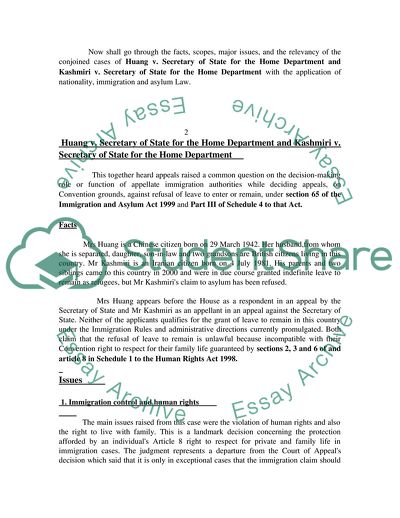Cite this document
(Analysis of Huang v. Secretary of State for the Home Department and Case Study Example | Topics and Well Written Essays - 2250 words, n.d.)
Analysis of Huang v. Secretary of State for the Home Department and Case Study Example | Topics and Well Written Essays - 2250 words. https://studentshare.org/law/1710938-nationality-immigration-and-asylum-law
Analysis of Huang v. Secretary of State for the Home Department and Case Study Example | Topics and Well Written Essays - 2250 words. https://studentshare.org/law/1710938-nationality-immigration-and-asylum-law
(Analysis of Huang V. Secretary of State for the Home Department and Case Study Example | Topics and Well Written Essays - 2250 Words)
Analysis of Huang V. Secretary of State for the Home Department and Case Study Example | Topics and Well Written Essays - 2250 Words. https://studentshare.org/law/1710938-nationality-immigration-and-asylum-law.
Analysis of Huang V. Secretary of State for the Home Department and Case Study Example | Topics and Well Written Essays - 2250 Words. https://studentshare.org/law/1710938-nationality-immigration-and-asylum-law.
“Analysis of Huang V. Secretary of State for the Home Department and Case Study Example | Topics and Well Written Essays - 2250 Words”. https://studentshare.org/law/1710938-nationality-immigration-and-asylum-law.


